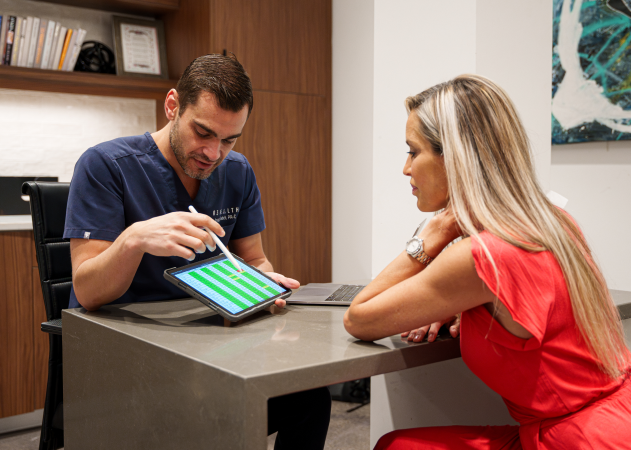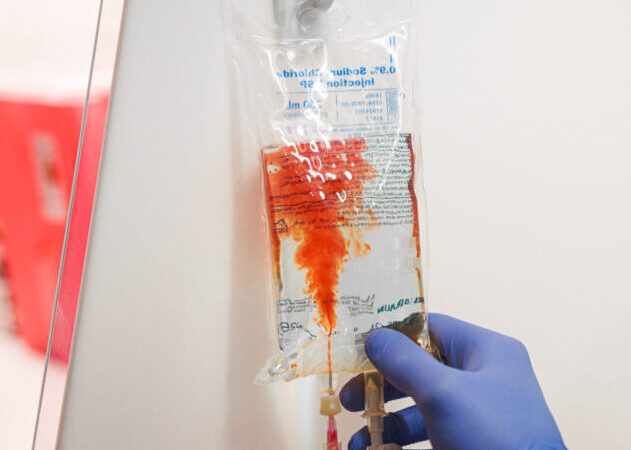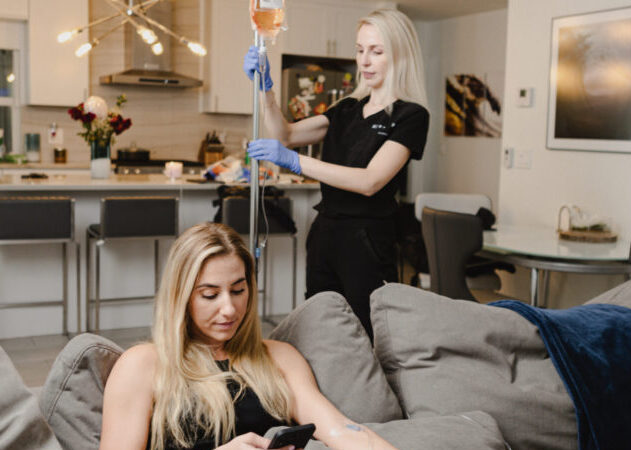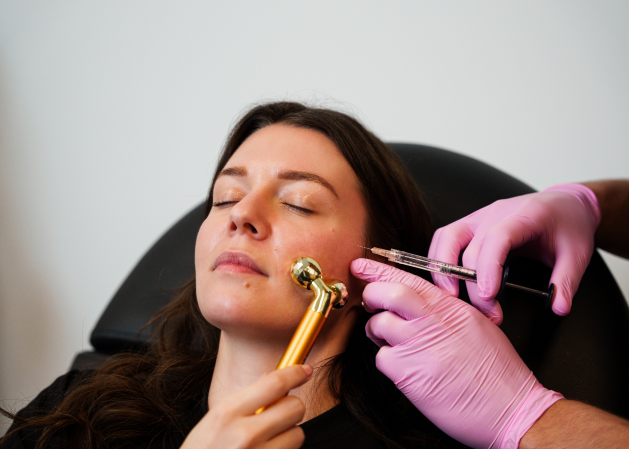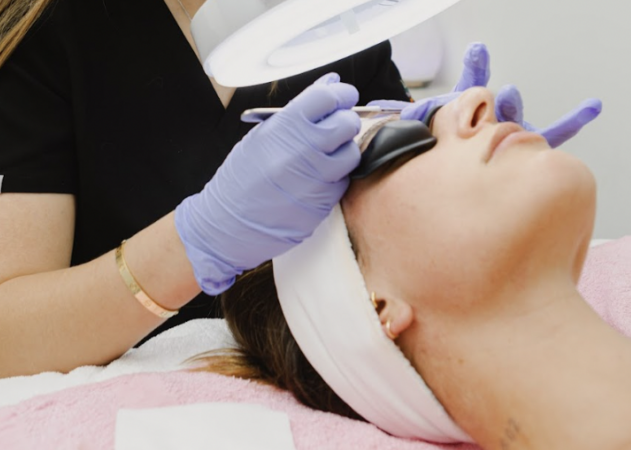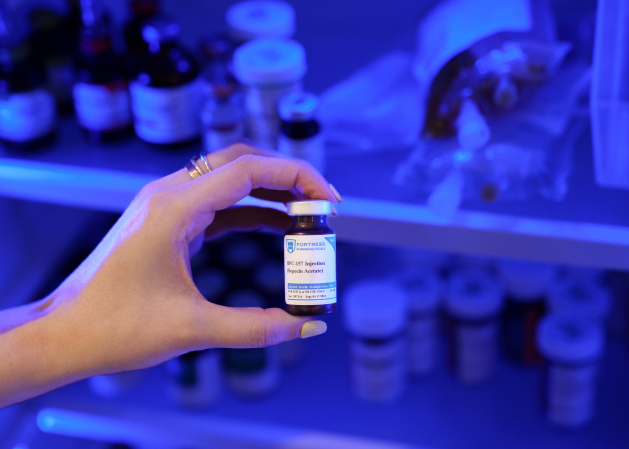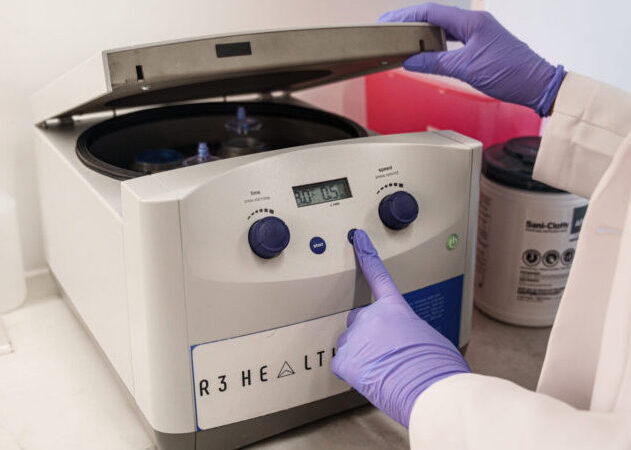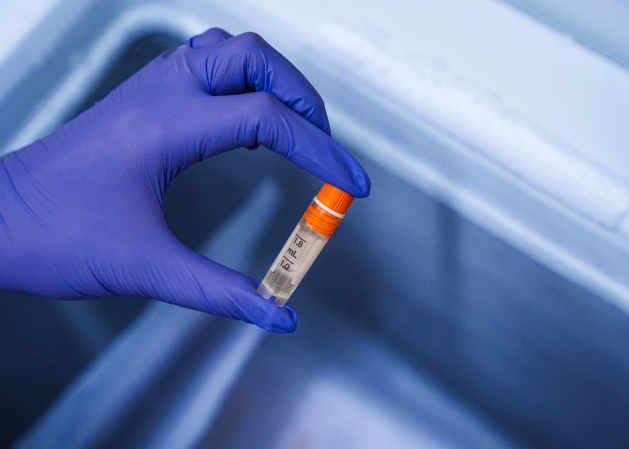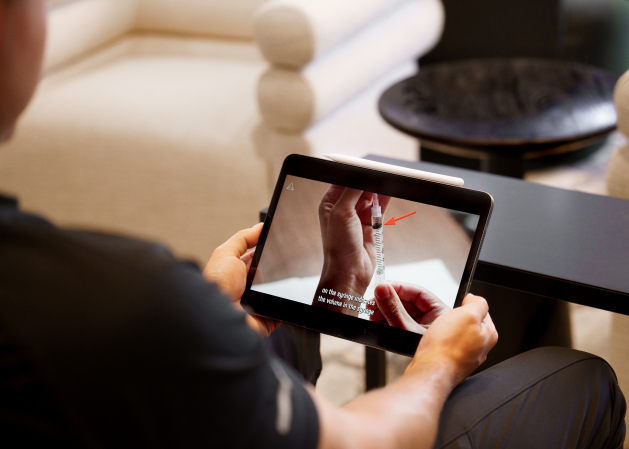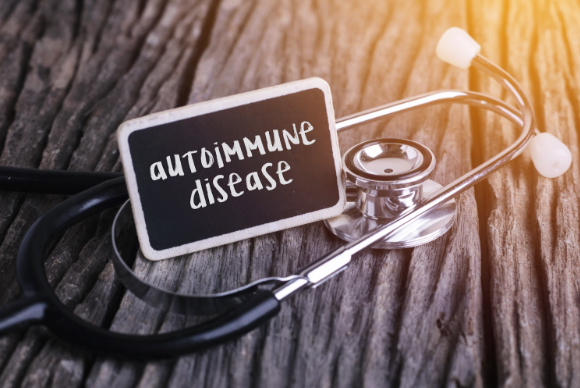Autoimmune Issues & What You Need to Know
Autoimmune disease happens when the body’s natural defense system can’t tell the difference between your own cells and foreign ones, which results in the body mistakenly attacking normal cells. There are more than 80 types of autoimmune diseases that affect different parts of the body. The most common autoimmune disorders include:
-
- Multiple Sclerosis, a chronic, typically progressive disease involving damage to the sheaths of nerve cells in the brain and spinal cord, is indicated by symptoms that may include numbness, impairment of speech and muscular coordination, blurred vision, and severe fatigue.
- Myasthenia Gravis is a neuromuscular disorder that causes weakness in the skeletal muscles, which your body uses for movement. It occurs when communication between nerve cells and muscles becomes impaired.
- Pernicious Anemia is a condition in which the body can\’t make enough healthy red blood cells because it doesn\’t have enough vitamin B12.
- Reactive Arthritis is joint pain and swelling triggered by an infection in another part of your body—most often your intestines, genitals, or urinary tract.
- Rheumatoid Arthritis is an autoimmune disease that can cause joint pain and damage throughout your body.
- Sjögren Syndrome is a disorder of your immune system identified by its two most common symptoms—dry eyes and a dry mouth. The condition often accompanies other immune system disorders, such as rheumatoid arthritis and lupus.
- Systemic Lupus Erythematosus is an autoimmune disease wherein the immune system of the body mistakenly attacks healthy tissue. As a result, it can affect the skin, joints, kidneys, brain, and other organs.
- Type I Diabetes, once known as juvenile diabetes or insulin-dependent diabetes, is a chronic condition in which the pancreas produces little or no insulin. Insulin is a hormone needed to allow sugar (glucose) to enter cells to have energy.
Treatments
Treatments can\’t cure autoimmune diseases, but they can control an overactive immune response and bring down inflammation while simultaneously strengthening your native immune system. Some available treatments include:
- Anti-Inflammatory Therapies to reduce inflammation and pain.
- Ozone Therapy Which stimulates the native immune system and calms down the hyperactive immune cells
- IV Therapy helps build a strong defense with crucial ingredients that boost the immune system and gives your body the energy needed to conquer your day.
- Integrative Medicine is personalized healthcare designed to achieve optimal and balanced wellness, prevent chronic disease, and manage the aging process.
- Peptide Therapies Natural amino acid based compounds that aid in helping the body strengthen the native immune system, lower inflammation, and help the body rebuild itself
- Telemedicine lets patients step outside of the traditional healthcare and insurance system to receive same-day or next-day visits through email, phone, or video conference, so you don’t have to worry about leaving your house and exposing yourself to potential germs or viruses.
A Spotlight On Celiac
Have you heard of this one? Probably—it’s a popular search term these days as more and more people learn about it. So what are we talking about? Celiac Disease is an autoimmune condition that mainly affects the small intestines and is triggered when a patient consumes gluten.
When someone with Celiac Disease eats something with gluten, their body overreacts to the protein and damages their villi, small finger-like projections found along the wall of their small intestine.
Villi are critical to the digestion process as their primary function is to absorb liquids from the foods we eat, whisking away vital nutrients to the rest of the body. Unfortunately, when they’re damaged, they don’t work correctly, causing extreme gastrointestinal distress like the following symptoms:
- Abdominal pain
- Anemia
- Bloating or a feeling of fullness
- Bone or joint pain
- Constipation
- Diarrhea
- Gas
- Heartburn
Treatment
The best “treatment” for Celiac Disease is to follow a gluten-free diet—which would entail eliminating ALL forms of gluten from your life. The good news here is that most people who do so will see a complete cessation of their symptoms, heal existing intestinal damage, and prevent further trauma. The bad news? Gluten is in so many products! From bread and other baked goods to beer and beyond, keeping it out of your diet can be a challenge in our modern world.
At R3 Health, we’re well acquainted with Celiac Disease—and we can assist in various ways. For starters, our Food Allergy and Sensitivity Test (FAST) helps patients uncover which foods are triggering their issues so doctors or other healthcare professionals may determine whether it’s Celiac or not. Knowledge is power and knowing where you’re currently situated regarding food allergies or sensitivities is the first step towards feeling better.
In addition, we offer Advanced Nutrition Services that allow you to take control of your health through your diet! As Hippocrates—the Ancient Greek Father of Modern Medicine—once said, “Let food be thy medicine and let medicine be thy food.” In other words, proper nutrition can bolster your health exponentially.
We can run an entire blood panel to see what nutrients may be missing or depleted from your system and design a custom-tailored diet plan to meet those needs. Plus, to ensure you’re progressing on the right track, our team of experts is available for regularly scheduled wellness visits so you can adjust your plan as your requirements change.
Let’s Talk About Raynaud’s Disease
Raynaud’s disease causes areas like your fingers and toes to feel numb and cold in response to frigid temps or stress. When suffering from Raynaud’s disease, smaller arteries that supply blood to your skin become narrow, limiting blood flow to affected areas.
Symptoms
During an attack of Raynaud\’s, affected areas of your skin usually first turn white. Then, they often turn blue and feel cold and numb. Symptoms of Raynaud\’s include:
- Cold fingers or toes
- Color changes in your skin in response to cold or stress
- Numb, prickly feeling or stinging pain upon warming or stress relief
Treatment
Treatment beyond self-care, such as dressing warmer, usually isn’t needed. However, if necessary, your doctor may recommend natural compounds or peptides to widen blood vessels and increase blood flow. This medication relaxes and opens small blood vessels in your hands and feet, which reduces the severity and number of attacks in most people who suffer from Raynaud’s.
Here at R3 Health, we also offer Red Light Stimulation Treatments, which is where a patient lies in a bed–similar to the kinds found in a tanning salon–as a warm, infrared red light surrounds them. This has been shown to promote all-over healing and may help with circulation problems common with Raynaud’s. Are you interested in taking a deep dive into LightStim and all its benefits? We’ve got you covered with THIS blog!
A Decision For Your Health
Autoimmune diseases negatively affect your life–but they aren’t the end of it! With the proper treatment, many of these ailments are easily manageable. Are you feeling overwhelmed? Don’t worry! We’re experts when it comes to all things health and wellness, so we have a vast amount of knowledge under our roof, just waiting to be shared with new and old patients alike. Ready for some top-tier assistance with your autoimmune worries and troubles? Contact us today for a FREE consultation, and start your journey back to a life you enjoy.
Autoimmune disease happens when the body’s natural defense system can’t tell the difference between your own cells and foreign ones, which results in the body mistakenly attacking normal cells. There are more than 80 types of autoimmune diseases that affect different parts of the body. The most common autoimmune disorders include:
-
- Multiple Sclerosis, a chronic, typically progressive disease involving damage to the sheaths of nerve cells in the brain and spinal cord, is indicated by symptoms that may include numbness, impairment of speech and muscular coordination, blurred vision, and severe fatigue.
- Myasthenia Gravis is a neuromuscular disorder that causes weakness in the skeletal muscles, which your body uses for movement. It occurs when communication between nerve cells and muscles becomes impaired.
- Pernicious Anemia is a condition in which the body can\’t make enough healthy red blood cells because it doesn\’t have enough vitamin B12.
- Reactive Arthritis is joint pain and swelling triggered by an infection in another part of your body—most often your intestines, genitals, or urinary tract.
- Rheumatoid Arthritis is an autoimmune disease that can cause joint pain and damage throughout your body.
- Sjögren Syndrome is a disorder of your immune system identified by its two most common symptoms—dry eyes and a dry mouth. The condition often accompanies other immune system disorders, such as rheumatoid arthritis and lupus.
- Systemic Lupus Erythematosus is an autoimmune disease wherein the immune system of the body mistakenly attacks healthy tissue. As a result, it can affect the skin, joints, kidneys, brain, and other organs.
- Type I Diabetes, once known as juvenile diabetes or insulin-dependent diabetes, is a chronic condition in which the pancreas produces little or no insulin. Insulin is a hormone needed to allow sugar (glucose) to enter cells to have energy.
Treatments
Treatments can\’t cure autoimmune diseases, but they can control an overactive immune response and bring down inflammation while simultaneously strengthening your native immune system. Some available treatments include:
- Anti-Inflammatory Therapies to reduce inflammation and pain.
- Ozone Therapy Which stimulates the native immune system and calms down the hyperactive immune cells
- IV Therapy helps build a strong defense with crucial ingredients that boost the immune system and gives your body the energy needed to conquer your day.
- Integrative Medicine is personalized healthcare designed to achieve optimal and balanced wellness, prevent chronic disease, and manage the aging process.
- Peptide Therapies Natural amino acid based compounds that aid in helping the body strengthen the native immune system, lower inflammation, and help the body rebuild itself
- Telemedicine lets patients step outside of the traditional healthcare and insurance system to receive same-day or next-day visits through email, phone, or video conference, so you don’t have to worry about leaving your house and exposing yourself to potential germs or viruses.
A Spotlight On Celiac
Have you heard of this one? Probably—it’s a popular search term these days as more and more people learn about it. So what are we talking about? Celiac Disease is an autoimmune condition that mainly affects the small intestines and is triggered when a patient consumes gluten.
When someone with Celiac Disease eats something with gluten, their body overreacts to the protein and damages their villi, small finger-like projections found along the wall of their small intestine.
Villi are critical to the digestion process as their primary function is to absorb liquids from the foods we eat, whisking away vital nutrients to the rest of the body. Unfortunately, when they’re damaged, they don’t work correctly, causing extreme gastrointestinal distress like the following symptoms:
- Abdominal pain
- Anemia
- Bloating or a feeling of fullness
- Bone or joint pain
- Constipation
- Diarrhea
- Gas
- Heartburn
Treatment
The best “treatment” for Celiac Disease is to follow a gluten-free diet—which would entail eliminating ALL forms of gluten from your life. The good news here is that most people who do so will see a complete cessation of their symptoms, heal existing intestinal damage, and prevent further trauma. The bad news? Gluten is in so many products! From bread and other baked goods to beer and beyond, keeping it out of your diet can be a challenge in our modern world.
At R3 Health, we’re well acquainted with Celiac Disease—and we can assist in various ways. For starters, our Food Allergy and Sensitivity Test (FAST) helps patients uncover which foods are triggering their issues so doctors or other healthcare professionals may determine whether it’s Celiac or not. Knowledge is power and knowing where you’re currently situated regarding food allergies or sensitivities is the first step towards feeling better.
In addition, we offer Advanced Nutrition Services that allow you to take control of your health through your diet! As Hippocrates—the Ancient Greek Father of Modern Medicine—once said, “Let food be thy medicine and let medicine be thy food.” In other words, proper nutrition can bolster your health exponentially.
We can run an entire blood panel to see what nutrients may be missing or depleted from your system and design a custom-tailored diet plan to meet those needs. Plus, to ensure you’re progressing on the right track, our team of experts is available for regularly scheduled wellness visits so you can adjust your plan as your requirements change.
Let’s Talk About Raynaud’s Disease
Raynaud’s disease causes areas like your fingers and toes to feel numb and cold in response to frigid temps or stress. When suffering from Raynaud’s disease, smaller arteries that supply blood to your skin become narrow, limiting blood flow to affected areas.
Symptoms
During an attack of Raynaud\’s, affected areas of your skin usually first turn white. Then, they often turn blue and feel cold and numb. Symptoms of Raynaud\’s include:
- Cold fingers or toes
- Color changes in your skin in response to cold or stress
- Numb, prickly feeling or stinging pain upon warming or stress relief
Treatment
Treatment beyond self-care, such as dressing warmer, usually isn’t needed. However, if necessary, your doctor may recommend natural compounds or peptides to widen blood vessels and increase blood flow. This medication relaxes and opens small blood vessels in your hands and feet, which reduces the severity and number of attacks in most people who suffer from Raynaud’s.
Here at R3 Health, we also offer Red Light Stimulation Treatments, which is where a patient lies in a bed–similar to the kinds found in a tanning salon–as a warm, infrared red light surrounds them. This has been shown to promote all-over healing and may help with circulation problems common with Raynaud’s. Are you interested in taking a deep dive into LightStim and all its benefits? We’ve got you covered with THIS blog!
A Decision For Your Health
Autoimmune diseases negatively affect your life–but they aren’t the end of it! With the proper treatment, many of these ailments are easily manageable. Are you feeling overwhelmed? Don’t worry! We’re experts when it comes to all things health and wellness, so we have a vast amount of knowledge under our roof, just waiting to be shared with new and old patients alike. Ready for some top-tier assistance with your autoimmune worries and troubles? Contact us today for a FREE consultation, and start your journey back to a life you enjoy.


